Why you can trust TechRadar
It's impressive that the Amazon Fire TV Stick requires so little energy, especially once you find out what the Fire TV Stick has going on inside the box – namely, a Broadcom dual-core processor, 1GB of memory and 8GB of storage.
Comparing that to the Chromecast, which sports a single-core processor, 512MB of memory and 2GB of storage, Amazon's stick comes out the clear winner.
Apps and games
Where the full-size set-top boxes like the Nexus Player and Apple TV struggle with too little content to choose from on their platforms, Amazon Fire TV has an abundance of apps at your disposal. All of the primary suspects are here and accounted for: Netflix, BBC iPlayer, Amazon Instant, Sky News, Spotify and more. It actually feels rather strange loading up Netflix on an Amazon device - if you take the Now TV box as an example of a device that has its own interests at heart, you will find neither Netflix or Amazon on board. In my view, the more open the better.
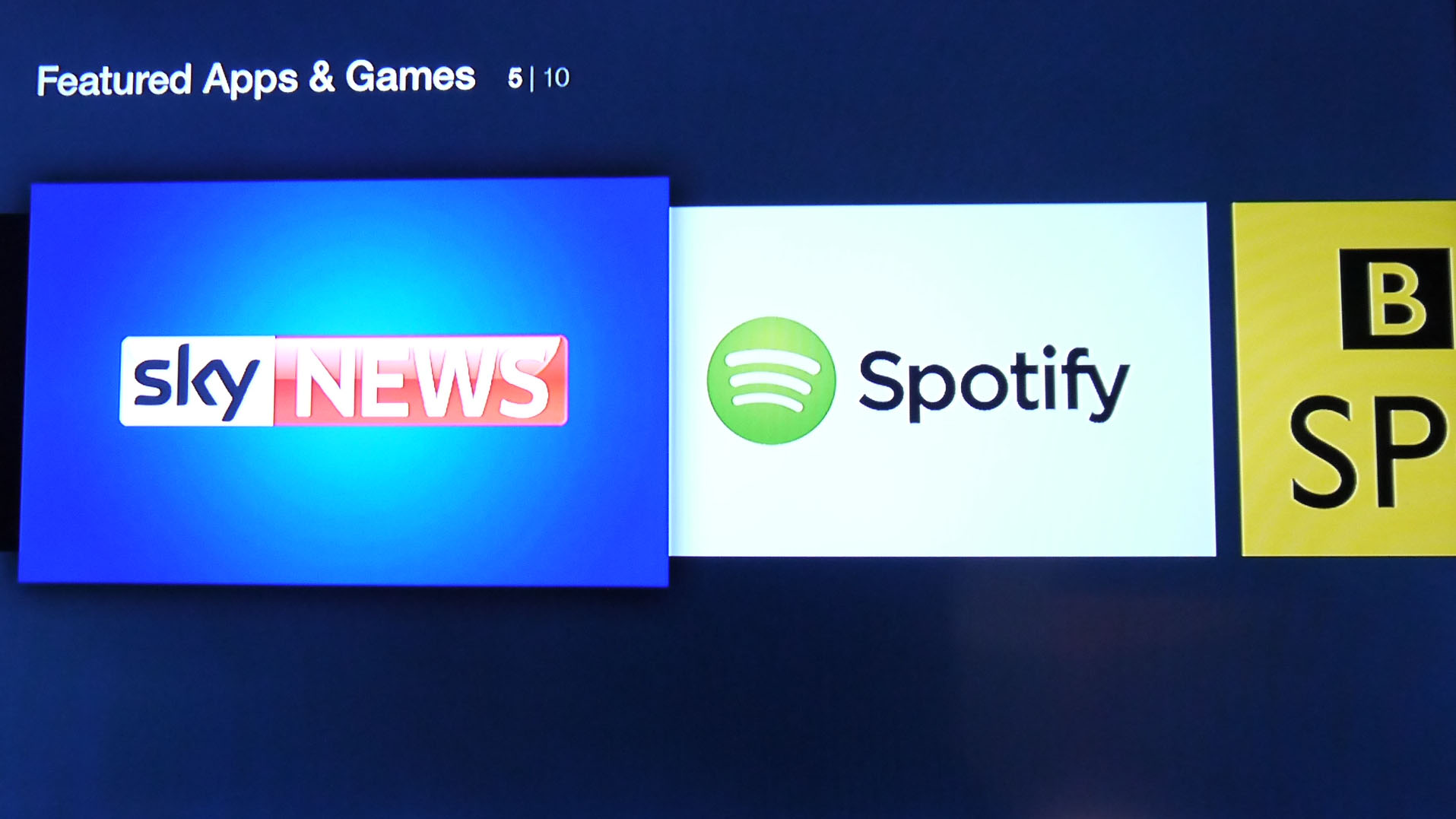
Games are also present and accounted for on Amazon's smaller system, and for the most part the less-intensive titles play incredibly well. Disappointingly though, you won't find many graphically demanding games here like The Walking Dead Season 1 or 2.
Nor are you likely to spot Grand Theft Auto here anytime soon. That doesn't seem to be due to any fault of the hardware – the system boasts the right specs for those higher-end games – the content simply isn't there.
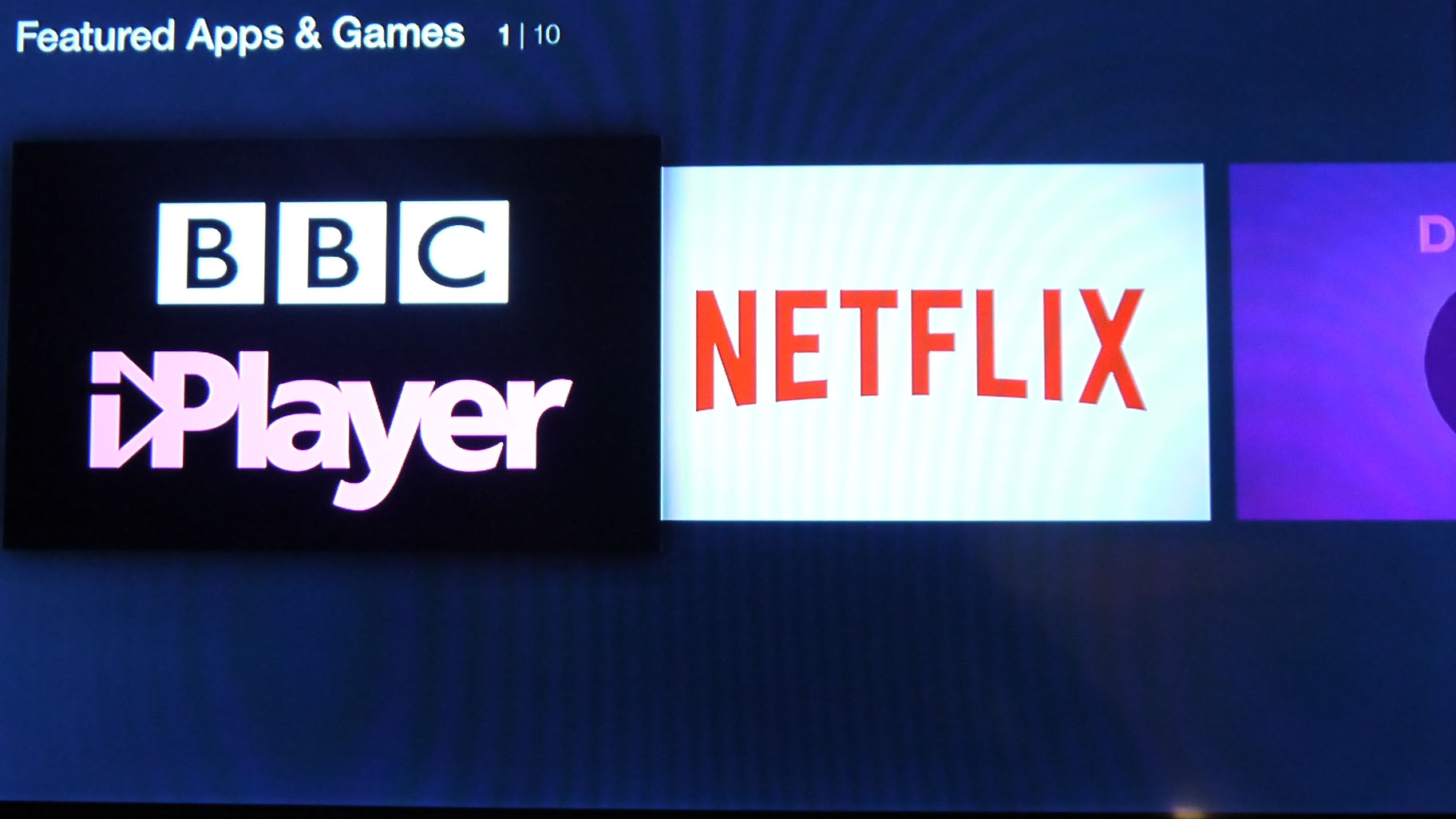
The lack of games doesn't necessarily hurt the system, however. If you want to have a streaming system that's jam-packed with gaming goodness, consider the full-size Amazon Fire TV or Nexus Player. Both have a dedicated gamepad sold separately and have a great selection of titles.
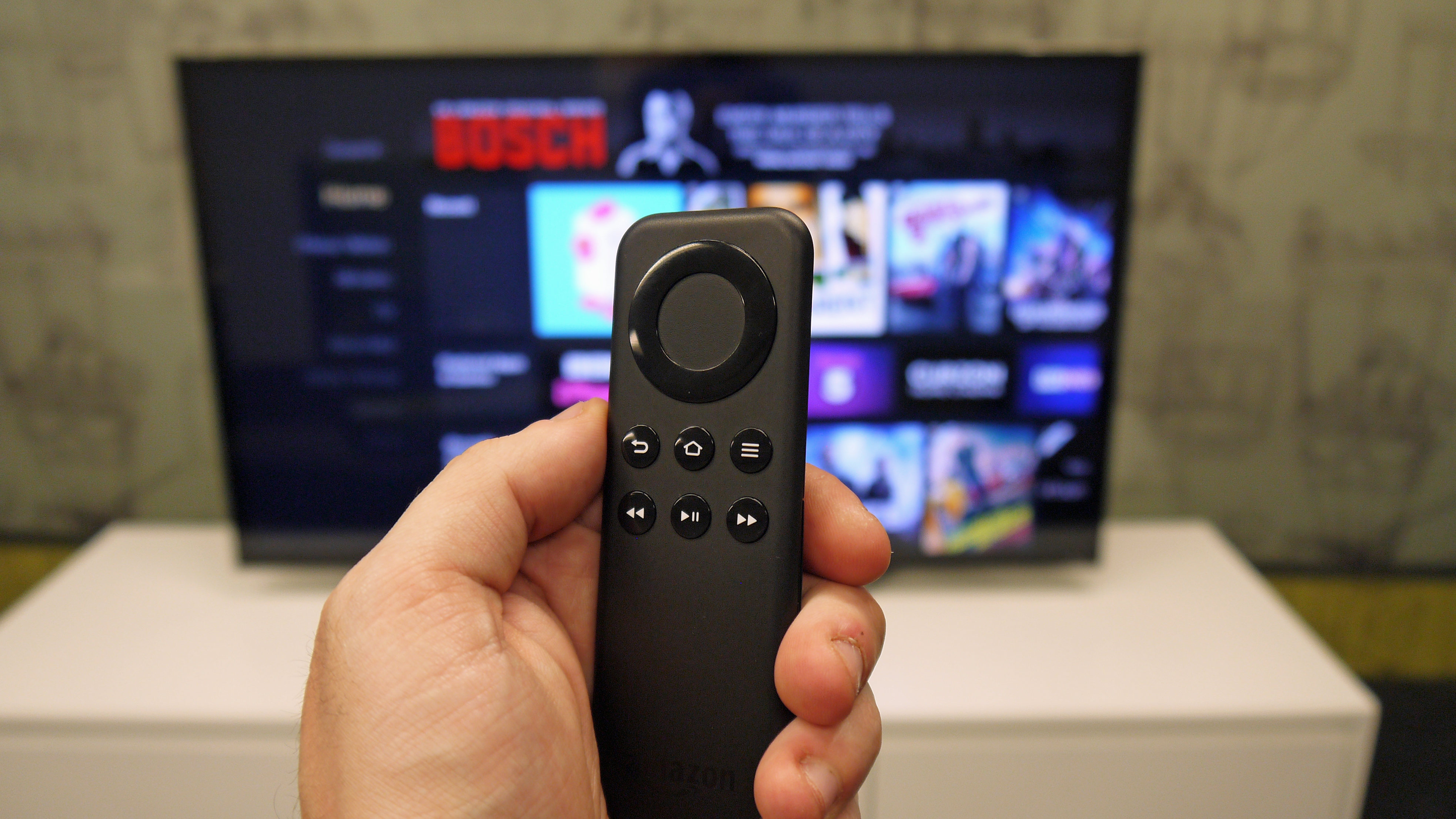
Speaking of separate controllers, the full-size Amazon Fire controller can also be paired with the Fire TV Stick. But many of the 200-plus games available on the console don't necessarily need – or work better – with a controller instead of the standard remote
The launch line-up of apps is as strong as it's going to be outside of a Roku product, and though I wish it were a little more AAA game-oriented and much more platform-agnostic (searches only return Amazon content. Also, a shared Google Play library would more than make up for any shortcomings in selection). That said, this is still a fairly balanced ecosystem.
Remote
One of the biggest advantages of buying the Amazon Fire TV Stick over the other guys is the remote. It weighs next to nothing and errs on the cheap side, but on it you'll find a few sparse, but powerful, buttons: back, home, menu, rewind, play/pause and fast forward. At the top you'll find a circular directional pad and a central button that does just about everything else.
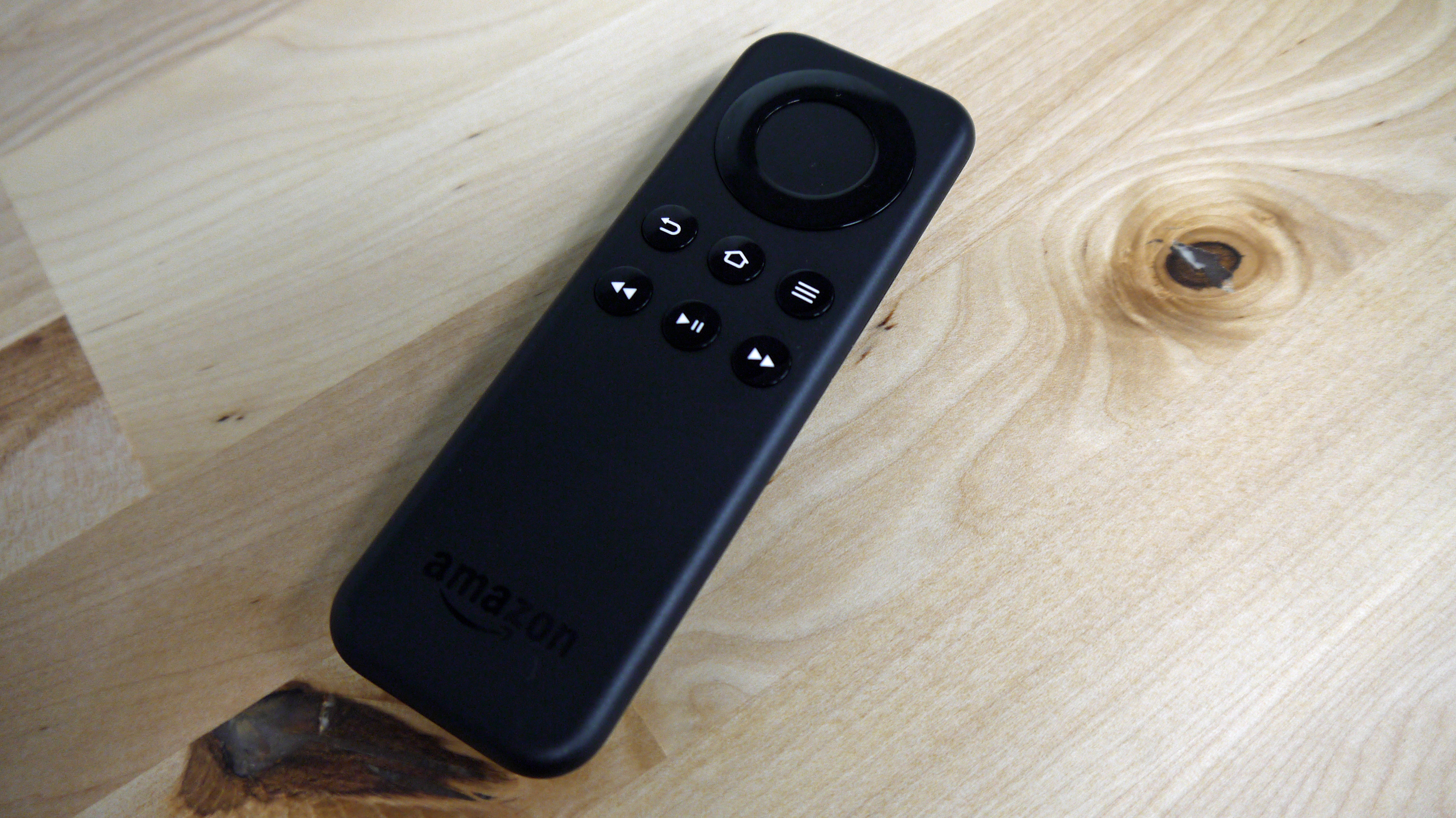
If you're a Fire TV owner you'll notice that this remote doesn't come with the built-in mic and voice-search button. The functionality still exists if you use the accompanying Fire TV app, but it doesn't exist on the pack-in peripheral.
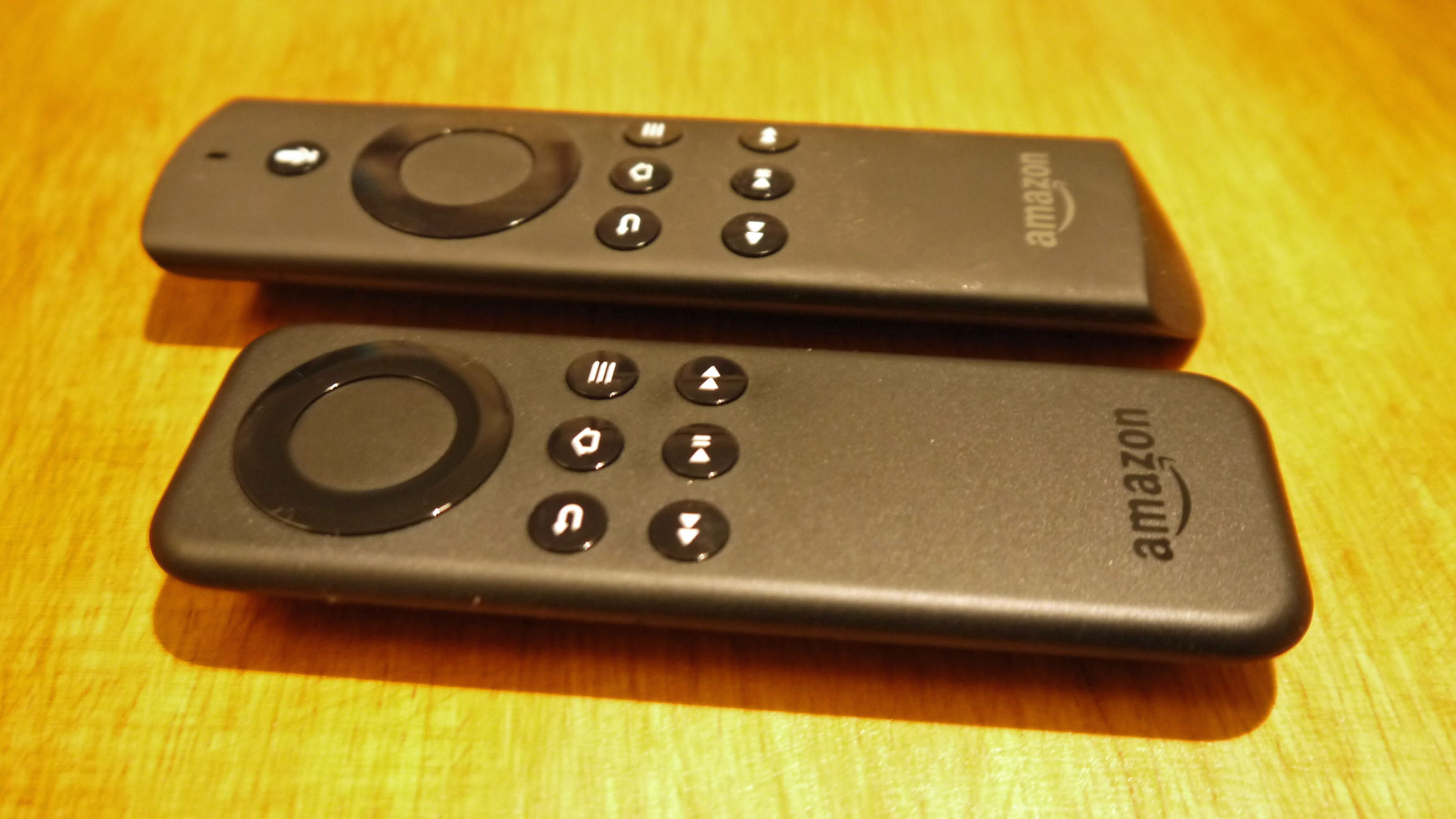
If you really need it, though, Amazon sells the full-size remote separately or allows you to sync your old Fire TV remote to the Stick without much of a problem. It just goes to show how much this functionality costs - but we didn't think it detracted too much from the viewing experience.

The remote also works over Bluetooth, which means it won't need direct line of sight to the Stick itself – a handy feature considering 95% of users will want to keep the Fire TV out of sight behind the television. In my testing, it was in the back of my television so having Bluetooth was essential. It may not win the award for "most durable remote", but the remote is exactly like the Stick: simple and efficient.
Interface, navigation and X-Ray
The interface is a direct replica of the full-size Amazon Fire TV's menu - this is certainly no bad thing. It's crowded and content-rich, making it a bustling, ever-evolving free-for-all for something to watch. It's may not be as clean-cut or aesthetically pleasing as some of the other menus we've seen on rival boxes, but Amazon chose to leave well enough alone and it's hard to argue against that reasoning.
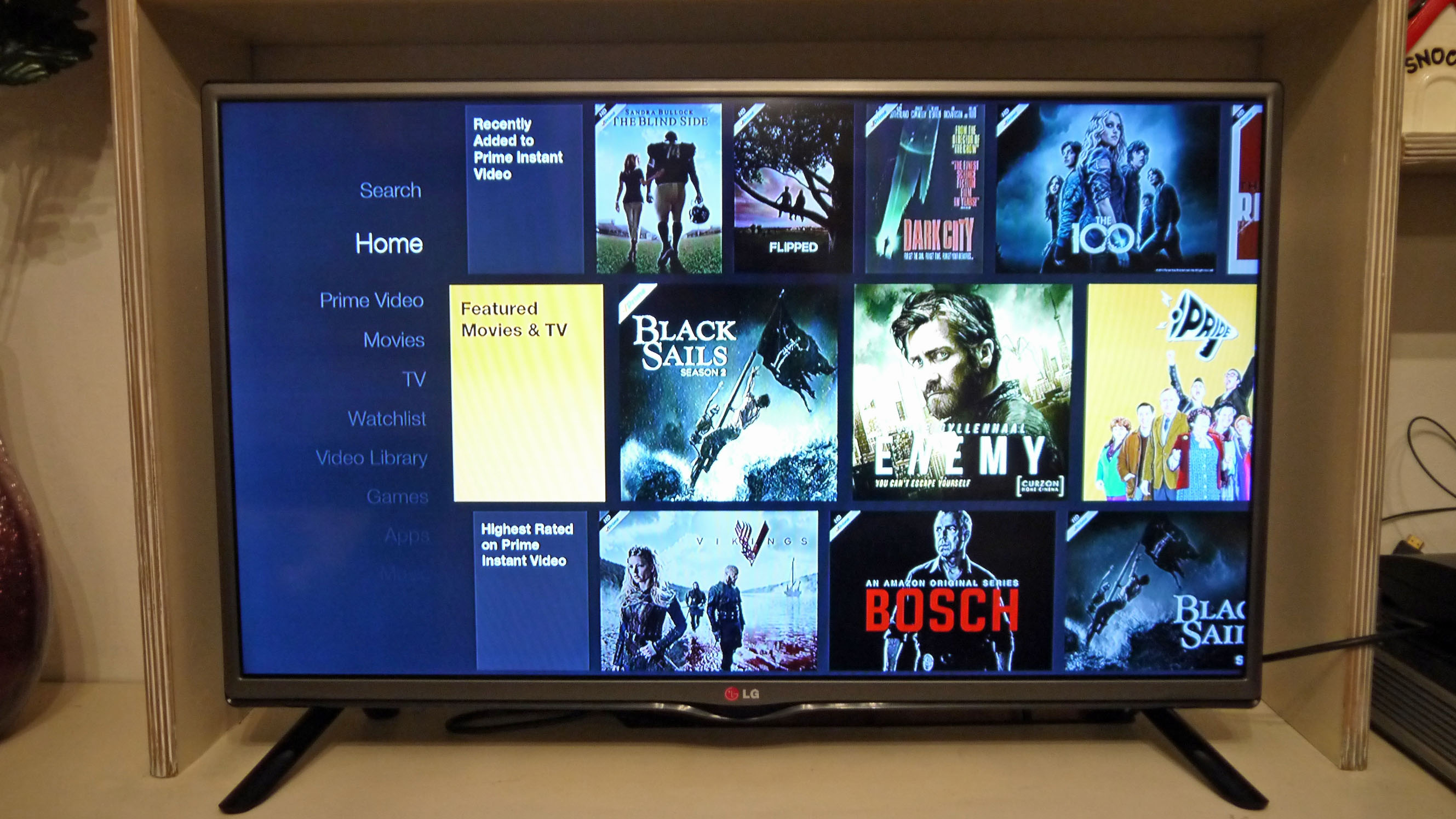
The users who'll see the most benefit here are compulsive Amazon media shoppers. Anytime you buy or rent a show or movie from Amazon, it will populate automatically in the "video library" sub-menu on the home screen. By doing this, Amazon builds a positive reinforcement cycle of buying new content on its storefront then showcasing everything you own in one centralised location.
And, thankfully, zipping around from one section of the interface to the next takes no time at all. The hardware delivers responsive results in tenths of a second and, when you finally decide on what to watch, Amazon's predictive technology takes things one step further by pre-loading the first few seconds of the Amazon Instant movies you are most likely to watch.
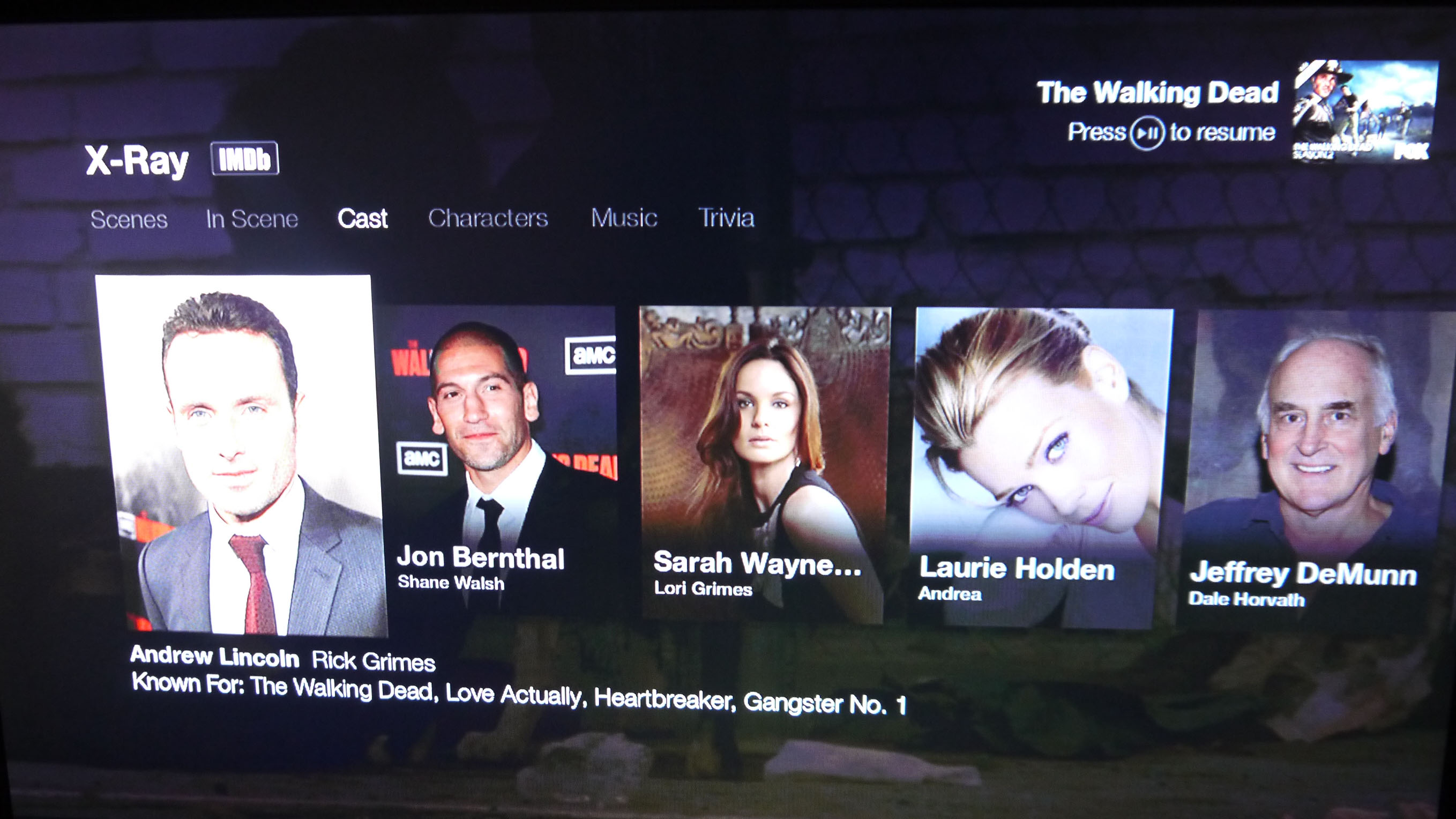
Another feature, which was added with an update, is Amazon X-Ray. This is something that makes good use of IMDB, part of the Amazon family, and is trivia heaven. Every time you pause a TV show or movie, the option to get cast list information and certain bits of trivia is offered up. You can also do this by pressing the upper part of the circular button on the remote. It's not perfect - I kept fast-forwarding the show when I tried to scroll through the cast list - but it is something that is only going to improve and could well be the USP Amazon needs to differentiate it from Netflix.
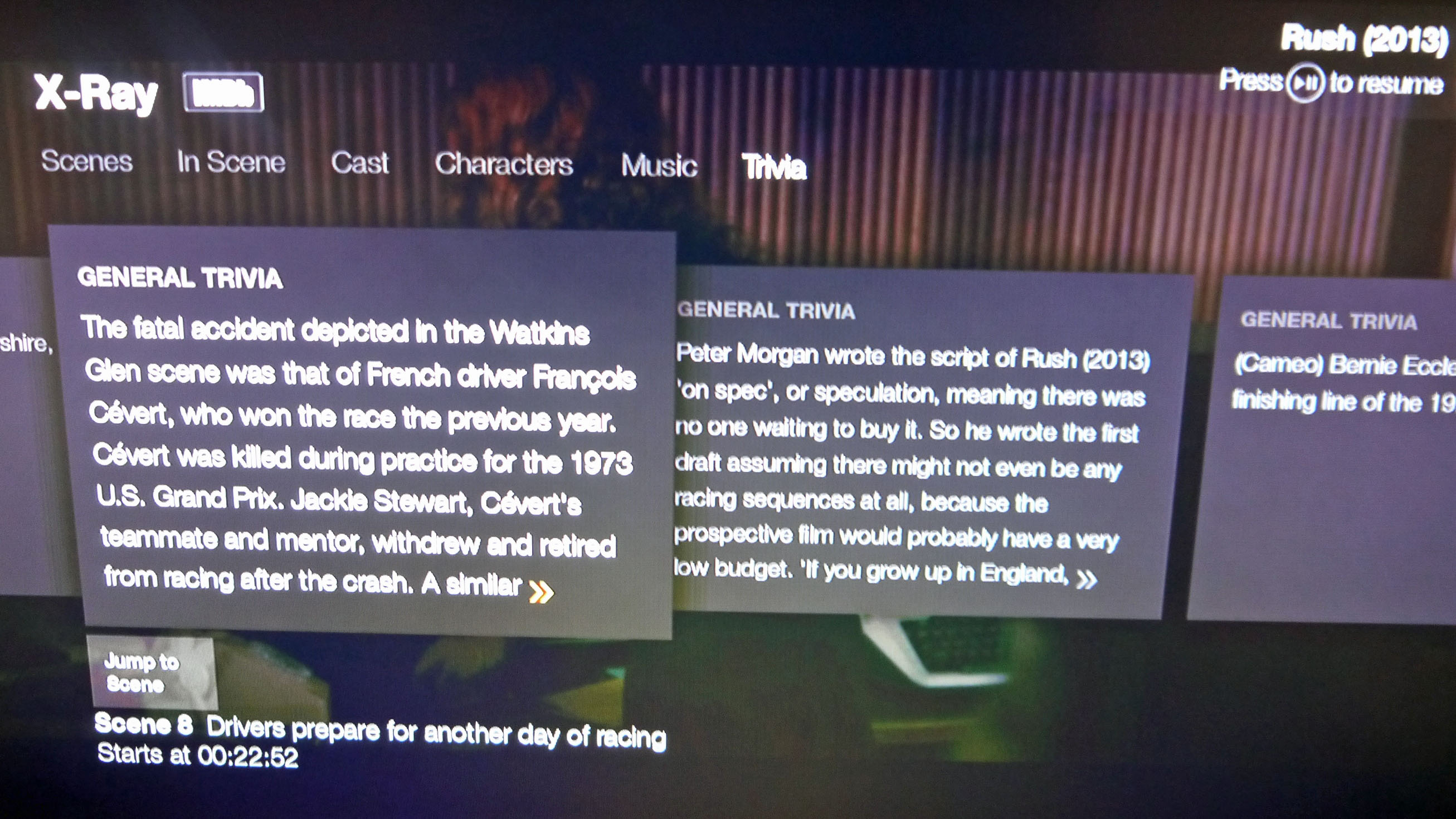
Current page: Specifications, apps and navigation
Prev Page Intro, design and setup Next Page VerdictMarc Chacksfield is the Editor In Chief, Shortlist.com at DC Thomson. He started out life as a movie writer for numerous (now defunct) magazines and soon found himself online - editing a gaggle of gadget sites, including TechRadar, Digital Camera World and Tom's Guide UK. At Shortlist you'll find him mostly writing about movies and tech, so no change there then.

